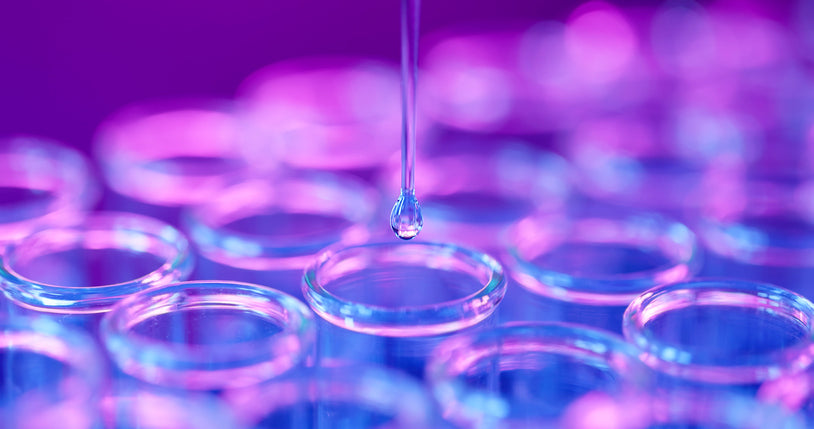
How is NMN made?
Nicotinamide Mononucleotide (NMN) has emerged as a promising supplement in the quest to enhance longevity and bolster overall health.
NMN, a precursor to NAD+ (Nicotinamide Adenine Dinucleotide), plays a pivotal role in cellular energy production and has garnered significant attention for its potential anti-ageing properties (R).
But have you ever wondered how NMN is made? Read on to find out and also discover the features that make AgeMate’s NMN unique.
The Origins of NMN
NMN is a molecule naturally produced in the human body, albeit in limited quantities. Its importance lies in its role as a precursor to NAD+, a coenzyme crucial for various biological processes, including energy metabolism and DNA repair (R).
The Manufacturing Journey OF NMN
Creating NMN supplements involves intricate steps, often starting from precursor compounds like nicotinamide riboside (NR) or other starting materials.
The conversion of these precursors into NMN typically occurs through enzymatic reactions or chemical synthesis in specialised laboratories or manufacturing facilities (R).
1. Extraction or Synthesis
NMN can be synthesised through various methods, including chemical synthesis, bacterial fermentation, or enzymatic conversion.
Chemical synthesis often involves complex reactions, where specific chemicals are manipulated to create NMN molecules; this method offers fast production, although it is considered a less eco-friendly option. The waste produced by chemicals can be hazardous to human health and the environment.
Bacterial fermentation is the most eco-friendly process but is slow to produce NMN.
Enzymatic conversion is eco-friendly and produces higher yields (R); this is why we proudly use enzymatic conversion at AgeMate. An enzyme (usually derived from fungi) converts NR into NMN during enzymatic conversion. Take a peek at the process below:

(Qian et al., 2022 | Bioresources and Bioprocessing) Enzymatic Conversion of NMN. The Klm-NRK enzyme from fungi converts 100 g/L of NR to 93.5 g/L of NMN per batch or 281.5 g/L of NMN per day. ATP is replenished (from ADP) with the Gbst-AcK enzyme.
2. Purification
Following synthesis, the NMN undergoes purification to remove impurities and ensure high product purity. Techniques like chromatography or filtration help refine the NMN, enhancing its quality for use in supplements (R, R).
3. Formulation
Once purified, the NMN is formulated into supplement capsules, tablets, powders, or liquids. These formulations involve combining NMN with other compounds or encapsulating it for improved absorption or stability. AgeMate uses enteric coating; studies suggest improved bioavailability with enteric coating (R).
4. Quality Control
Throughout manufacturing, stringent quality control measures are implemented to verify the purity, potency, and safety of the NMN supplements. This includes rigorous contaminant testing and ensuring the final product meets regulatory standards.
Challenges and Considerations
Creating NMN supplements comes with challenges, primarily related to high purity, stability, and compound bioavailability.
The manufacturing process aims to address these challenges to produce optimal efficacy and safe supplements.
At AgeMate, we have taken it one step further by independently testing our NMN with a third-party USA testing lab to validate purity. View our Third Party Testing Certificate.
The Promise of NMN Supplements
While the manufacturing process is intricate, NMN supplements hold promise as a potential aid in promoting cellular health and addressing age-related decline. Research on NMN's potential benefits in enhancing NAD+ levels and supporting various biological functions continues to grow and fuel interest in these supplements (R).
Conclusion
The production of NMN supplements involves a complex journey from precursor compounds to the final formulated product. These supplements provide a reliable source of NMN through meticulous manufacturing processes and quality control measures, potentially offering support for cellular health and vitality.
As research on NMN and its effects on health advances, the manufacturing process continues to evolve, aiming to deliver supplements that align with the pursuit of healthier, more resilient ageing.
*Disclaimer: Before starting any new supplement regimen, it's advised to consult with a healthcare professional to determine suitability and potential interactions with existing medications or conditions.
